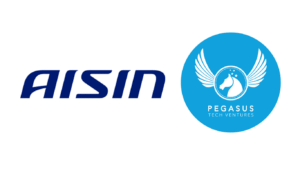A successful business depends on more than just profit margins, innovation, or customer satisfaction. The true strength of an organization rests on the well-being of its workforce. When employees feel secure and supported, they bring their best selves to work, creating a foundation of loyalty and trust. By safeguarding employees who experience work-related injuries or illnesses, employers build a culture of stability and confidence that benefits everyone involved. Workers’ compensation, when viewed as a long-term strategy rather than a short-term expense, becomes a cornerstone for business growth and reputation.
The Role of Legal Guidance in Workers’ Compensation
Many business owners underestimate how intricate the process of handling workers’ compensation claims can be. Navigating state regulations, managing paperwork, and addressing disputes require both precision and understanding. Working with a skilled attorney offers peace of mind. They help employers strike a balance between protecting the company and ensuring fair treatment for injured workers. If a business is uncertain about how to proceed or how to refine its approach, it can reach out for more information about professional legal support and how such expertise shapes a more resilient compensation framework. Legal professionals bring clarity to complex regulations, reduce confusion, and strengthen the relationship between management and staff by promoting fairness in every claim decision.
Building Trust Through Employee Protection
Trust between employers and employees cannot be manufactured through slogans or policies alone. It grows when workers witness genuine care and accountability. A reliable workers’ compensation system sends a clear message that the company stands behind its people. When an injury occurs, the affected worker faces not just physical pain but anxiety about job security and financial stability. Knowing there is a structured process for support brings relief and fosters commitment to the organization.
Companies that take proactive steps to communicate the benefits and procedures of workers’ compensation create transparency that reduces confusion and mistrust. When employees understand how claims are handled and what rights they hold, they are less likely to feel neglected or marginalized. This sense of fairness builds a productive workplace culture where safety and integrity are seen as shared values rather than managerial obligations.

Financial Stability Through Risk Management
A well-implemented workers’ compensation program protects a business from unpredictable financial strain. Without proper coverage or claim handling, a single serious workplace injury could lead to lawsuits, settlements, or compliance penalties that drain company resources. By maintaining consistent coverage and a clear policy for reporting and responding to incidents, employers reduce exposure to these risks.
Beyond avoiding penalties, sound compensation management lowers overall operational costs. Companies with fewer claims often benefit from reduced premiums and improved safety records, both of which attract investors and strengthen the firm’s reputation in the industry. The financial benefits extend beyond insurance savings.
Promoting a Culture of Safety and Responsibility
Workers’ compensation functions most effectively when it’s part of a broader commitment to workplace safety. Employers who treat safety as a continuous goal rather than an occasional reminder create conditions where accidents are less likely to occur. Regular training, clear reporting channels, and a visible commitment to protective measures make employees feel valued and respected. When workers understand that their safety is a top concern, they respond with greater engagement and responsibility.
A safe workplace reflects careful planning and consistent attention to detail. It demands collaboration between leadership and employees, not just compliance with regulations. Companies that review incident reports, implement preventive measures, and reward adherence to safety standards develop an environment where everyone plays an active role in minimizing harm.
Strengthening Reputation and Employee Retention
Reputation is one of a company’s most valuable assets. In a competitive market, organizations recognized for treating employees well stand apart from those that view workers as replaceable. Workers’ compensation directly influences how a business is perceived by its staff, clients, and partners. When an employer acts swiftly and compassionately to support injured employees, it demonstrates accountability and human decency.
Such conduct resonates beyond internal operations. Clients and stakeholders prefer to align with businesses that show ethical commitment to their workforce. Investors, too, favor organizations with low employee turnover and minimal legal disputes. A strong compensation program contributes to both. Workers who feel secure in their roles are less likely to seek employment elsewhere, saving the company significant recruitment and training costs.
Workers’ compensation represents far more than a set of legal obligations. It’s a reflection of a company’s values, priorities, and long-term vision. Companies that recognize this connection are not only protecting their workforce; they are safeguarding their future.
Blog received via Mail






























